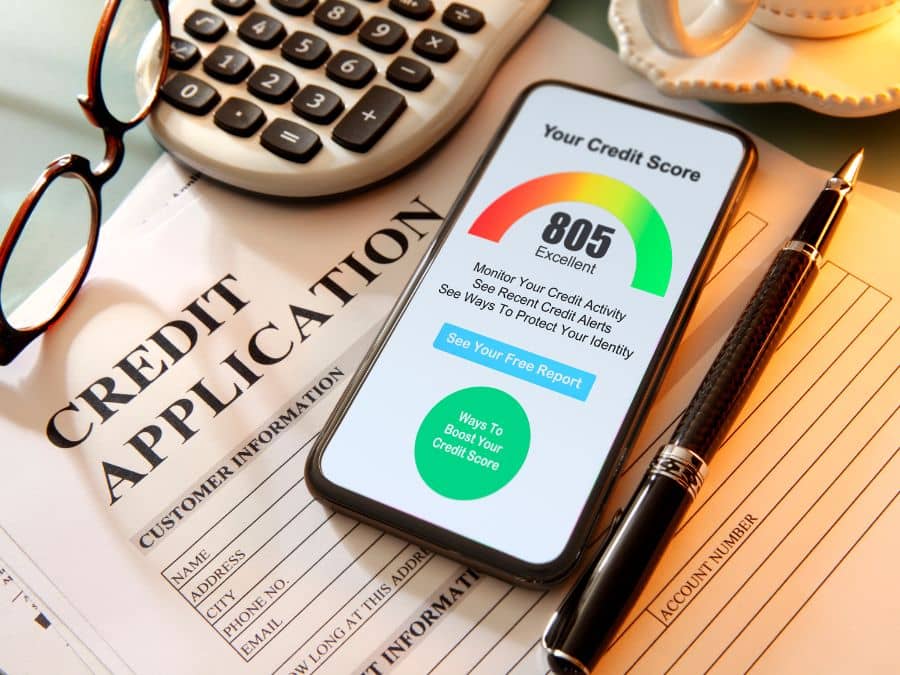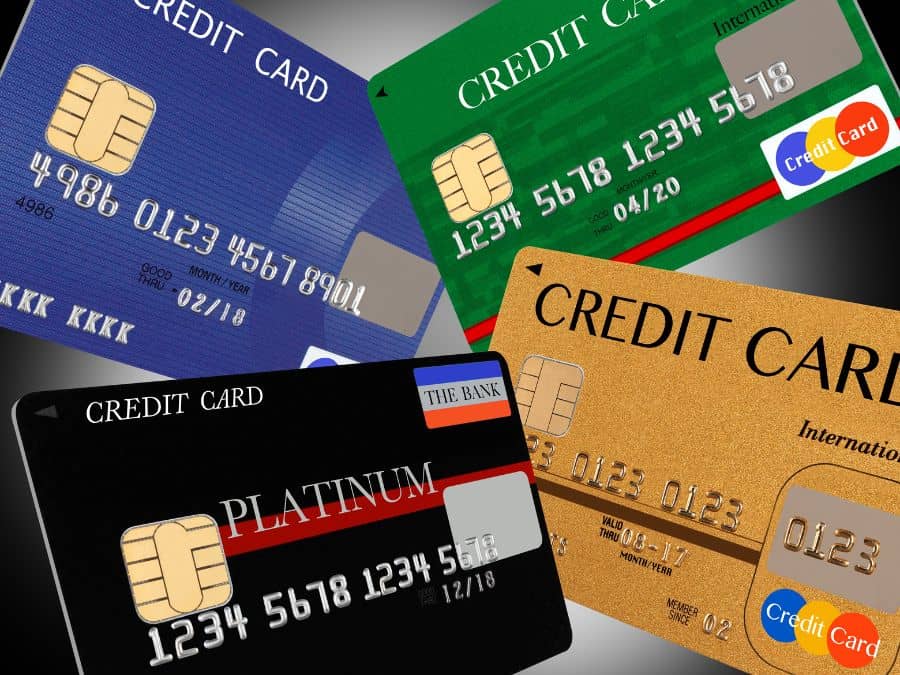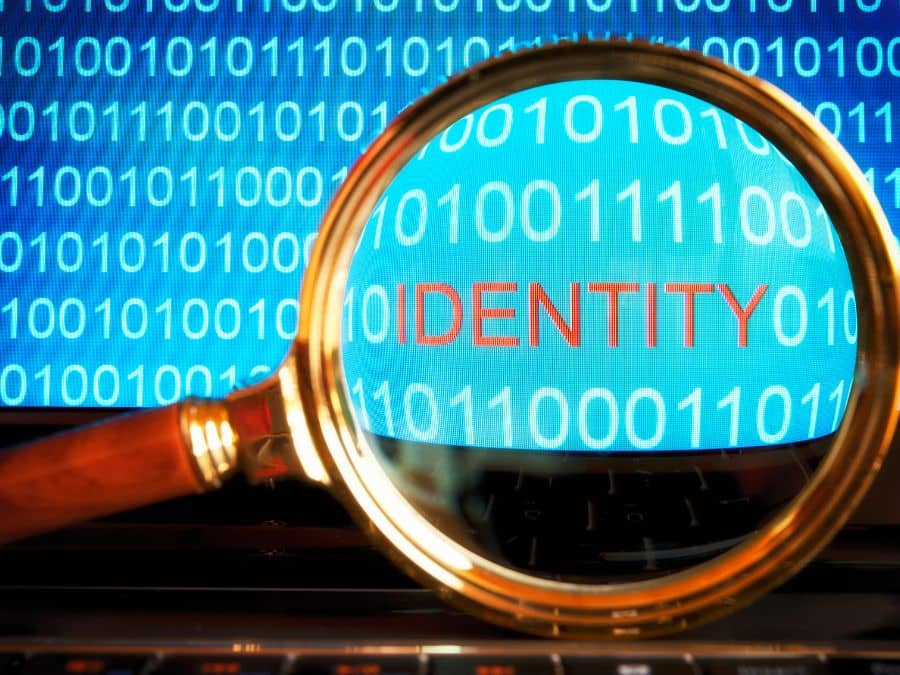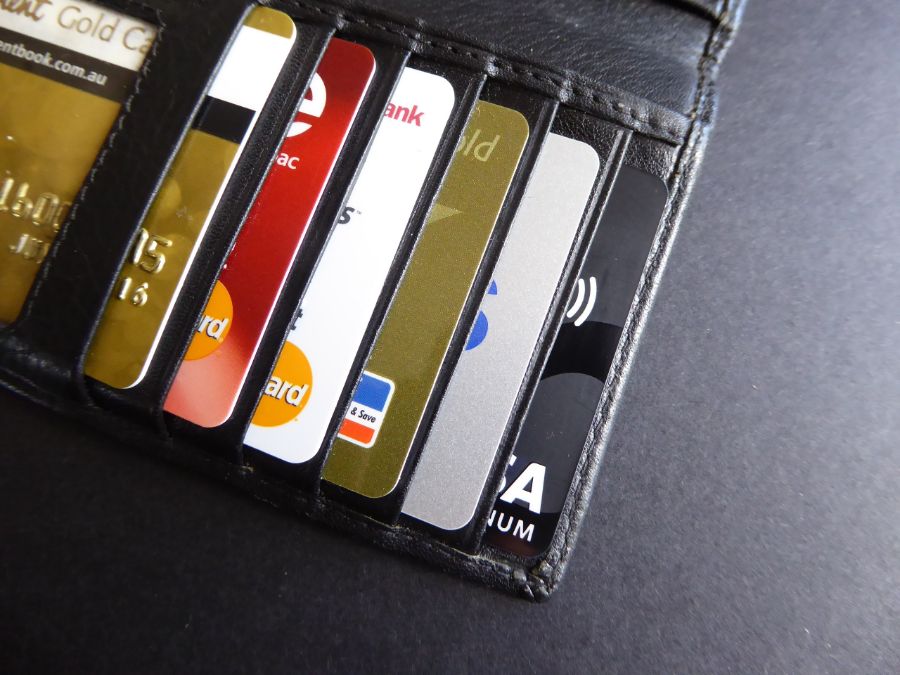Can I Get A Credit Card Without Sharing My Identity
Are you considering getting a credit card but don’t want to share your identity? In today’s digital world, it can be difficult to keep personal information secure. However, there are ways that individuals can obtain a credit card without having to reveal too much of their private data. This article will explore the available options and explain how you can get a credit card without sacrificing your privacy.
Credit cards offer many advantages such as access to emergency cash and rewards programs for frequent shoppers. But with all these benefits come certain risks – including potential exposure of one’s financial information if not handled properly. Fortunately, there are steps that consumers can take in order to protect themselves and still enjoy the convenience of using plastic money.
From prepaid debit cards to virtual accounts, there is now an array of products on the market specifically designed for those who wish to remain anonymous while still reaping the rewards associated with owning a credit card. Keep reading to learn more about how you can easily get a secure credit card without compromising your security or exposing confidential information!

What Is A Credit Card?
A credit card is a powerful financial tool that can help people manage their money and build credit. It provides access to funds on demand, allowing individuals to purchase goods and services without the need for cash or cheque payments. Credit cards offer convenience, flexibility, and rewards when used responsibly.
To get a credit card, an individual must first apply with a lender who will review the application information and conduct a credit check before approving or denying the request. The applicant’s personal information such as name, address, social security number, and income are collected in order to verify identity and assess risk factors associated with granting credit.
Once approved, the customer receives a physical plastic card which they can use at merchants around the world wherever major brands like Visa or Mastercard are accepted. Additionally, customers may also be provided with further options such as online banking access or mobile payment apps which enable them to securely manage their account from anywhere in the world.

How Do Credit Cards Work?
Transitioning from the previous section, it is important to understand how credit cards work. Credit cards are payment vehicles that offer users access to a line of revolving debt with an associated interest rate in exchange for their promise to pay back what they owe. Generally speaking, when someone uses a credit card to purchase goods or services, the funds come out of a pre-approved loan amount and must be paid off over time.
In order to secure a credit card, most financial institutions will require some form of identification such as ID numbers, social security numbers or other forms of personal information. This is because these institutions need to evaluate the user’s ability to repay the money borrowed before granting approval for the card. Depending on individual circumstances and qualifications, applicants may receive either an unsecured or secured credit card account. An unsecured card does not require any collateral but has limits imposed by lenders based on one’s creditworthiness while a secured card requires some sort of deposit which can later be used if payments are missed.
When using a credit card, it is essential for consumers to stay within their approved limit and make timely payments in order to maintain good standing with creditors. Otherwise, high fees and interests rates could quickly add up making repayment difficult. By understanding how credit cards work and being mindful of spending habits, individuals can enjoy greater control over their finances without having to share detailed identity information upfront.

Pros And Cons Of Identity Verification For Credit Card Applications
When applying for a credit card, one of the steps involved is identity verification. This process requires applicants to provide personal information in order to confirm that they are who they say they are. There are pros and cons associated with this step when it comes to obtaining a credit card.
The primary advantage of providing your identity documents when applying for a credit card is that it helps protect against fraud. By verifying an applicant’s identity, financial institutions can ensure that no unauthorized person has obtained access to their records or account details. It also ensures that any transactions made using the account can be traced back to the rightful owner. As such, identity verification provides an extra layer of security that benefits both consumer and lender alike.
On the downside, some people may feel uncomfortable sharing their private information due to privacy concerns. Additionally, if an individual does not have proper identification papers at hand then they will not be able to apply for a credit card without first obtaining them from another source – which could mean more time spent waiting before being approved for the card itself. Furthermore, if identity documents are lost or stolen, there is potential risk of someone else assuming ownership over the account or misusing funds within it.
Overall, while identity verification is necessary for certain types of accounts like those involving large sums of money and expensive purchases; there are still risks associated with sharing personal data during the application process – making care and caution key aspects in ensuring safe use of these services

Alternatives To Providing Id For Credit Card Applications
It is possible to get a credit card without providing your identity, though it may require some extra steps. Here are four alternatives you can explore:
1. Pre-paid cards – These are debit cards that allow you to only spend the amount of money that has been preloaded onto the card. They do not typically require any personal information to purchase and can be used as regular Visa or Mastercard products with accepted merchants.
2. Secured credit cards – To obtain one of these, you’ll need to provide proof of address and have funds deposited into an account held by the bank issuing the product. The available funds will then determine your credit limit for that particular card. This type of card is ideal if you don’t want to reveal your full identity but still wish to build up or maintain a good credit history.
3. Anonymous gift cards – You can buy anonymous gift cards in stores – such as Target or Walmart – where no ID is required at checkout; however, they cannot usually be used outside of specific retailers and have limited benefits compared to other types of payment methods.
4. Virtual wallets – This option allows users to store their financial data securely on digital platforms, enabling them to make payments online without ever having divulged personal details like their name, address and social security number (SSN). It’s important to note that virtual wallet services aren’t generally accepted everywhere yet, so it may not work in all situations when making purchases offline or abroad.
Overall, there are options out there if you would prefer not to disclose your identity while getting a credit card; however, it’s essential to weigh up all possibilities carefully before deciding which route works best for you financially and logistically.

Requirements For Non-Identity Verified Credit Cards
It is possible to get a credit card without sharing your identity, though the process may not be as straightforward as with more traditional cards. Non-identity verified credit cards are available, but they typically come with some restrictions and limitations that must be taken into account before applying.
First and foremost, it’s important to note that non-identity verified cards do not report activity to the major consumer reporting agencies—Equifax, Experian and TransUnion—so if you’re looking for a way to build positive credit history, this isn’t the route for you. In addition, non-identity verified cards often have lower spending limits than those associated with regular cards; however, there are ways around this limitation depending on the issuer. You may also find higher interest rates on these types of cards due to their limited verification requirements.
Finally, many issuers require applicants to provide additional evidence of income or other financial information in order to qualify for a non-identity verified card. Be sure to read all terms and conditions carefully so you know exactly what’s expected of you should you apply for one of these products. It pays off to shop around in search of the best offer tailored specifically to your needs and capabilities at any given time.
Security Measures For Non-Identity Verified Credit Cards
For those wishing to obtain a credit card without providing personal identity details, there are ways to ensure the security of their finances. While these cards may not offer the same protection as traditional ones that require identification verification, they can still provide users with a secure environment in which to make financial transactions.
First and foremost, it is important for individuals considering this type of card to research the company offering it and its policies carefully. Make sure you understand all fees associated with the card as well as any limitations on how much money can be spent or withdrawn each month. Most non-identity verified cards will also come with certain restrictions regarding where purchases can be made and what types of goods and services can be purchased using them.
It’s also important to monitor your account regularly for suspicious activity such as unauthorized charges or withdrawals. Be sure to report any discrepancies right away so that appropriate steps can be taken by the issuer to prevent further losses. Additionally, be aware of expiration dates on cards and any other rules stipulated by the issuer concerning use of funds. By taking proactive steps while being vigilant about monitoring your account activities, you’ll help keep your finances safe when using a non-identity verified credit card.

Types Of Identity Protection Services Available
Fortunately, there are many methods to protect your identity without having to share it with credit card companies. Many of these services can help you keep track of your personal data and prevent identity theft.
Here is a comprehensive list of the different types of identity protection services available:
Monitoring Services
Credit Report Monitoring: This service monitors changes in your credit report for any fraudulent activity or suspicious behavior.
Identity Theft Protection: This service monitors various databases such as court records, banking accounts, and more to alert you if any unauthorized activities occur on your accounts.
Preventive Measures
Secure Sharing Platforms: These platforms allow users to securely store and share their personal information online with trusted parties only.
Password Managers: This type of software creates complex passwords for all your digital accounts that are difficult for hackers to crack.
Overall, using an identity protection service can be beneficial in preventing potential threats like fraud or phishing scams from occurring on your credit cards. With secure sharing platforms and password managers becoming increasingly popular among consumers, it is important to take advantage of available resources when protecting yourself against cyber criminals. The better prepared you are, the easier it will be to spot possible problems before they become serious issues.

Prepaid Debit Cards Vs Traditional Credit Cards
Prepaid debit cards and traditional credit cards both offer convenience when purchasing goods or services, but there are some key differences between the two. To start, a prepaid card is not linked to any sort of loan or line of credit; it’s simply loaded with money that can be spent until it runs out. Conversely, a traditional credit card is associated with an account where users borrow funds from a financial institution and agree to pay back what they owe over time plus interest.
When it comes to cost, prepaid options usually carry no annual fees while most other forms of plastic come with one. Additionally, applicants don’t need to worry about their credit score in order to qualify for a prepaid card as these products aren’t dependent on your borrowing history—a big advantage for those who have yet to build up their credit standing. On the flip side, if you’re looking for rewards such as cash back offers or travel points then you’ll want to opt for a more conventional form of payment since these perks typically aren’t available through pre-funded accounts.
Ultimately, the choice between using a debit card versus a standard credit product boils down to personal preference and spending habits. If you’d rather not accumulate debt then go ahead and choose the former option; however, if you feel comfortable managing debt responsibly then by all means select the latter route and take advantage of its many benefits!
How To Choose The Right Card Without Sharing Identity
Transition: While prepaid debit cards are a great way to avoid the credit check process, they are not suitable for everyone. Now that you know the differences between traditional and prepaid credit cards, let’s look at what it takes to get a card without sharing your identity.
The first step in getting a credit or debit card without revealing too much of your personal information is research. There are plenty of websites offering comparison tools to help you identify which banks have the best offers that fit your needs. It’s important to read through each offer thoroughly before making any decisions as some companies may require more financial details than others. Once you’ve narrowed down your choices, start looking into their privacy policies to make sure they won’t be selling or sharing your data with third-party marketers.
Another option is to use an online payment processor like PayPal or Venmo, which allow users to link their bank accounts and pay merchants directly from those accounts without ever having to share their actual banking information with anyone else. This can provide extra security while still giving access to all the benefits of using a credit or debit card. Additionally, many digital wallet services now accept encrypted payments so you don’t have to worry about your identity being compromised during transactions.
In order to choose the right card without exposing yourself too much, consider these tips:
- Do extensive research on different banks/lenders and compare offers
- Read through each lender’s privacy policy carefully before signing up
- Explore online payment processors such as PayPal & Venmo
- Look into digital wallet services for added encryption when making payments
- Utilize two-factor authentication whenever possible
Making smart decisions when choosing a card is key – especially if you want to remain anonymous during transactions. By taking time to do research and understanding how different services work, you’ll be able protect yourself from potential fraudsters and enjoy the convenience of shopping securely with peace of mind.

Best Practices For Protecting Your Identity With A Credit Card
Having a credit card can be an invaluable financial tool, but it also presents the risk of having your identity stolen. Fortunately, there are some simple steps you can take to reduce that risk and help protect your identity.
For starters, always keep track of where and how you use your cards. If possible, avoid using public Wi-Fi networks or computers when making purchases with your card online. Instead, opt for a secure connection like cellular data or even a virtual private network (VPN). Additionally, make sure any sites you purchase from employ the latest security measures like encryption and multi-factor authentication. You should also try to limit access to physical copies of your cards by carrying only the ones necessary at any given time.
Finally, regularly review all of your statements for accuracy and promptly report any suspicious activity or discrepancies to your bank or credit union immediately so they can investigate further. Taking these precautions will ensure that you’re doing everything in your power to safeguard both yourself and your finances against identity theft when using credit cards.
Conclusion
In conclusion, credit cards are useful and sometimes necessary tools for managing finances. However, it is important to be aware of the risks associated with identity verification during a credit card application process. Fortunately, there are alternatives available that do not require identification in order to obtain a credit card. Furthermore, utilizing services such as prepaid debit cards or identity protection can help ensure your financial security while still maintaining access to all the benefits of having a traditional credit card.
On average, more than 10 million Americans suffer from some form of identity theft each year*. This statistic highlights the importance of understanding how best to protect your personal information when applying for a credit card – whether you opt to provide an ID or not. A few simple steps involving research and comparison shopping will go a long way towards helping you get the right card without compromising your privacy or risking your financial well-being.
Ultimately, being informed about the various options available is key when deciding which type of credit card works best for me without sacrificing my safety or putting myself at risk of identity fraud. With careful consideration and wise choices, I have the opportunity to enjoy all the privileges that come along with owning a credit card without sharing any unnecessary personal data or leaving myself vulnerable to scams.*
Statistic source: Federal Trade Commission (https://www.consumer.ftc.gov/articles/0272-how-keep-your-personal-information-secure)







